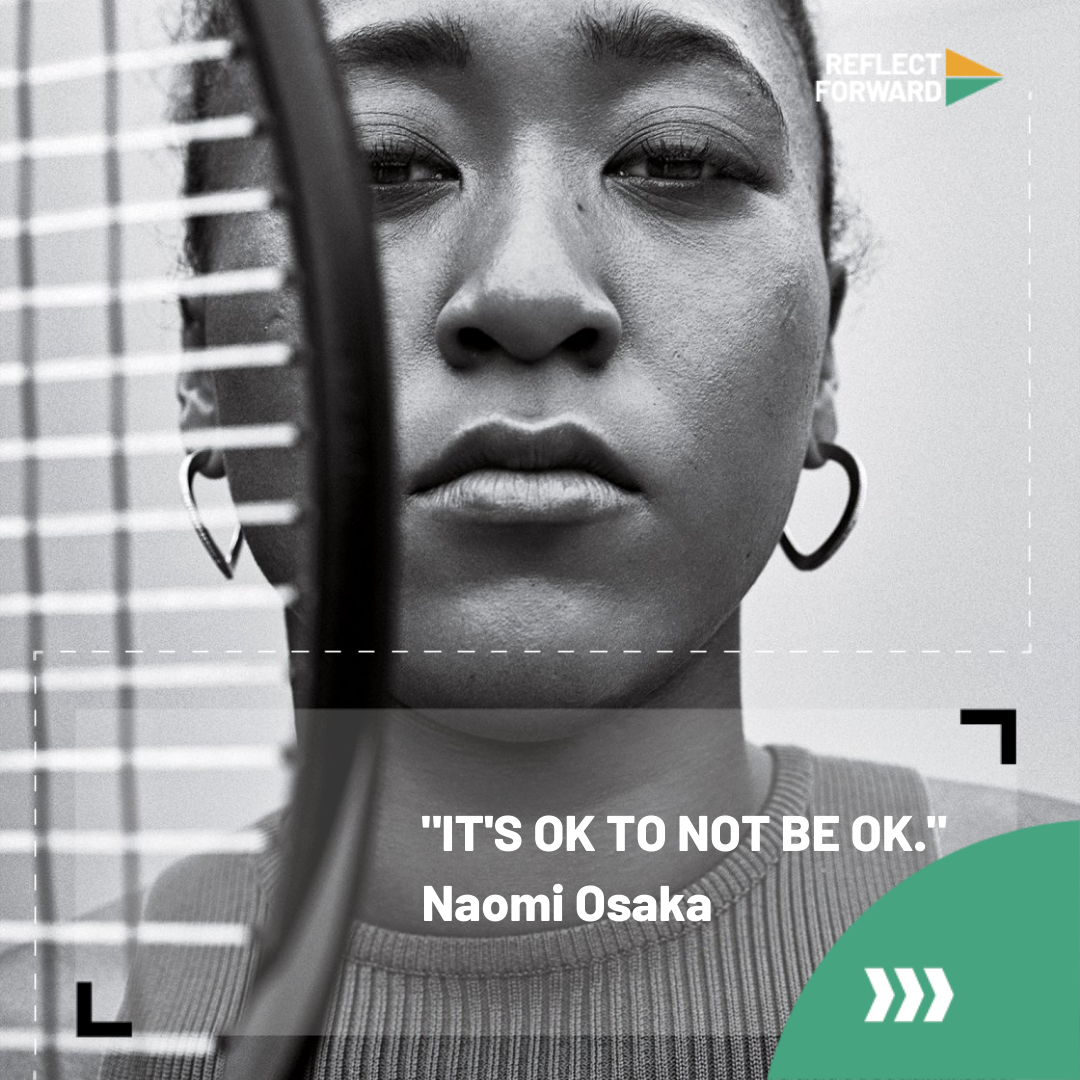It's Okay to Not Be Okay
Naomi Osaka: It’s OK to Not Be OK
In 2021 tennis star Naomi Osaka withdrew from the French Open to take care of her mental health. Her move shone an empowering light on prioritising mental health and highlighted the need for change in professional sport.
Osaka’s official website notes that she is a multicultural, multiracial, Japanese-Haitian-American woman, representing the modern world on and off the courts.
“As long as I can remember, people have struggled to define me,” says Osaka. “I’ve never really fit into one description.”
In addition to standing up for mental health, Osaka has been a prominent advocate for racial justice - wearing face masks emblazoned with the names of Black victims of racial violence, and flying to Minneapolis to participate in peaceful protesting of police brutality against Black people following the murder of George Floyd.
The naturally introverted, shy star has suffered long bouts of depression since 2018 and does not court the spotlight, experiencing a huge wave of anxiety before speaking to world media at press conferences.
In an effort to exercise self care and preserve her mental health, Osaka let the French Open know that she wished to skip post-match press conferences required of players. But the organisers weren’t listening.
Osaka announced that she would not participate in the press conferences, and the French Open issued a $15,000 fine for her decision, promising further penalties. In response, Osaka withdrew from the tournament - a watershed moment in our understanding of mental health in the sporting world and beyond in society.
Reflecting on her experience, Osaka wrote for TIME Magazine that she always tries to push herself to speak up for what she believes to be right - but that often comes at a cost of great anxiety.
Osaka suggests we should give athletes the right to take a mental break from media scrutiny on a rare occasion, without being subject to strict sanctions and harsh scrutiny.
“I do hope that people can relate and understand it’s OK to not be OK, and it’s OK to talk about it. There are people who can help, and there is usually light at the end of any tunnel,” she wrote.
US swimmer Michael Phelps, the most successful and decorated Olympian of all time, told Osaka that by speaking up she may have saved a life.
“If that’s true, then it was all worth it,” wrote Osaka.

